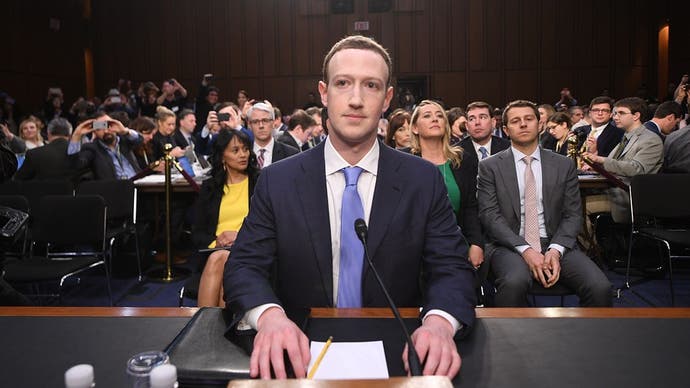Steam's content policy is both arrogant and cowardly
Having appointed itself the god-king of PC gaming, Valve is vacating the throne.
Yesterday, in response to a couple of recent controversies, Valve announced that it would abandon its (few, vestigial) efforts to curate the content of games on its ubiquitous PC gaming platform, Steam. "We've decided that the right approach is to allow everything onto the Steam Store," Valve's Erik Johnson said in a blog post, "except for things that we decide are illegal, or straight up trolling."
The company's argument was constructed to appear principled: there is no such thing as consensus on what is offensive, Johnson argued, even within Valve itself; it is not Valve's place to be a moral arbiter or to decide what is permissible; players and game creators should enjoy the right to freedom of speech. But the post also betrayed a confusion born of profound arrogance about where a society's rules end and the responsibilities of members of that society - especially influential members such as Valve - begin. And worse, it showed a cowardly unwillingness to tackle the tough questions that any company in Valve's enormously powerful and lucrative position must face.
In its 15 years of operating Steam, Valve has progressively openend up the platform, starting by actively curating content for quality and suitability, then devolving those roles to the community through Greenlight, and finally throwing the doors open with Steam Direct. Inevitably, the volume of games skyrocketed and the quality nosedived. Valve's efforts to control the ensuing chaos have been half-hearted and inconsistent, as evidenced by the contrast in two recent stories: Steam warned the developers of several anime visual novels that their content was pornographic, although they weren't as explicit as some other games to be found on the platform; days later, it was slow to react to the appearance of a school-shooting game called Active Shooter. Eventually, the warnings were retracted and Active Shooter was removed from the store on a technicality, but Valve had finally been spurred into some soul-searching on the topic - soul-searching that seems to have led to a depressingly predictable retreat.

There are important principles to be debated and defended here. Of course video game creators should be free to express themselves within the bounds of the law, and most people reading this will count themselves lucky to live in a society where such laws are liberal. Maybe those visual novels were misidentified as pornographic, but then again, if pornography is considered permissible then of course video game pornography should be, too. Active Shooter is a disgustingly callous game that disrespects the victims of these terrible events, but that is not to say that games about school shootings should be banned, because it is entirely possible that somebody will one day use video games to explore the topic in as nuanced and thought-provoking a way as, for example, Gus Van Sant's chilling and brilliant film Elephant.
Game creators have a right to free speech... but they do not have a right to publish their games on Steam. For Valve to confuse these things is deluded
Yes, game creators have a right to free speech, to make games on any topic they like, as transgressive and offensive as the law allows. But they do not have a right to publish these games on Steam. For Valve to confuse these two things is a deluded fallacy, and for it to offer this delusion as an excuse for an abandonment of moral values and an abdication of social responsibility is rank cowardice.
The astonishing arrogance that underlies this delusion can be found in this passage of Johnson's blog: "If you're a player, we shouldn't be choosing for you what content you can or can't buy. If you're a developer, we shouldn't be choosing what content you're allowed to create. Those choices should be yours to make." Guess what, Valve: we still have those choices regardless of what you do. As huge as Steam is, it does not actually have a global hegemony on video game distribution. Other ways of making, distributing and playing games exist, but Valve appears to think that by removing a game from the Steam store it is effacing it from existence. It has confused itself with national governments, the internet, society itself. It actually thinks it has absolute power.

In fact, what Valve is is an unusually influential actor in a cultural establishment. Establishments are loose and argumentative crowds of voices - critics, regulators, politicians, activists, industry operators - that together decide the cultural norms that will prevail within the wider bounds set by the law. Take Elephant as an example: that film saw the light of day because a chain composed of production companies, critics, film classification boards, distributors and cinema operators all agreed that it deserved to be brought to the wider public and that they were happy to be associated with it. You can imagine that another film on the level of Active Shooter would have been excoriated or quietly shunned by the same bodies. It wouldn't have been "banned", but it might have struggled to find financing, or sneaked out on some bottom-feeding video label.
It's also important to cultural establishments that there should be people within them who are prepared to test the boundaries of these norms and expand the idea of what is permissible: people like Walter Minton, the book publisher who printed Lolita, Vladimir Nabokov's searching and bitingly funny novel about a hapless pedophile, when no-one else would touch it. Not every stockist and bookseller was brave enough to follow his lead, but enough did that a literary phenomenon was born and the cultural landscape shifted. Laws are there to protect us, but cultural norms are set by thinking humans taking moral positions and others challenging those positions.
Valve is certainly in a tough spot. The means to make and digitally distribute games are extremely accessible and the barrier to entry is so low that, with Steam, the company finds itself forming almost every link of that chain on its own. As such, it would have to both set norms and challenge them itself. It is - almost - a one-horse cultural establishment. But that 'almost' is crucial. It has peers to measure its standards against, not least Sony, Microsoft, Nintendo, Apple and, alongside it on PC, GOG. It has a tumult of voices within the gaming press and community to listen to and help inform its thinking. And in any case, the extent of its influence only increases its responsibility to perform the role that a cultural establishment should.

Yet its response has been to cower from the weight of that responsibility and withdraw. Let us be clear: Valve has not made this choice because it thinks it is the ethically correct thing to do. It has made this choice because it does not want to think about ethics at all, and because it is afraid of making the difficult decisions that a company in its position must face. There exist much bigger companies than Valve who face much more existentially terrifying versions of the same problem - companies like Google and Facebook, who find themselves with the fate of the world in their hands - and though none of them is exactly doing a brilliant job, none of them is running away and hiding either. They are having conversations and they are trying.
Valve says the games it allows onto Steam will not be a reflection of its values, as if it hadn't just made an active choice to have no values at all
Valve, however, by its own admission, can't even resolve its own internal debates about the issue - which, by the way, shows a worrying lack of leadership and a weak company culture. The most weaselly passage of the blog states that "the games we allow onto the Store will not be a reflection of Valve's values", as if Valve hadn't just made an active choice to have no values at all beyond not turning away anyone who might make it a dime.
I believe Valve's stance stems from a lie the company has been telling itself for a very long time now. Founder Gabe Newell has always zealously championed the PC as an open platform, as opposed to the walled gardens of the consoles and smartphones, and this was at the root of his bitter split with his former employer, Microsoft, which he views as too controlling. Yet he has made billions by creating a closed platform on the open platform, a sealed-off ecosystem defined by digital rights management.
That's fine, because Steam has always justified its existence through pricing, convenience and reliable engineering; the deal with the customer is a fair one. But becoming a platform behemoth runs counter to Valve's self-image as a relatively small, disruptive, agile and above all open tech company. So it has consistently shirked doing and being the big, boring, bureaucratic things that a platform behemoth needs to do and be. Steam doesn't really do quality control, or customer support, or community management, or public relations. It responds to human problems with code, with graphs.
But you can't write code to make ethical choices for you and you can't describe your company's moral values in a graph. So the human beings at Valve - there must be some left, somewhere - have thrown up their hands at the impossibility of it all and backed away. They will watch the vast community they built devolve into toxicity and hate and their storefront get overrun with exploitative, bilious rubbish, and they won't intervene for fear of offending anyone or taking a position on anything. It is weak, it is immoral and it is unworthy of our industry and our art form.




-3-31-23-screenshot.png?width=291&height=164&fit=crop&quality=80&format=jpg&auto=webp)




